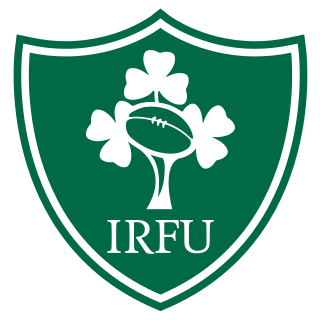The 1884 Home Nations Championship was the second series of the rugby union Home Nations Championship. Six matches were played between 5 January and 12 April 1884. It was contested by England, Ireland, Scotland, and Wales.
The 1885 Home Nations Championship was the third series of the rugby union Home Nations Championship. It was contested by England, Ireland, Scotland, and Wales, but the tournament was not completed.
The 1887 Home Nations Championship was the fifth series of the rugby union Home Nations Championship. Six matches were played between 8 January and 12 March. It was contested by England, Ireland, Scotland and Wales.
The 1888 Home Nations Championship was the sixth series of the rugby union Home Nations Championship. Three matches were played between 4 February and 10 March. It was contested by Ireland, Scotland and Wales. England was excluded from the Championship due to their refusal to join the International Rugby Football Board.
The 1889 Home Nations Championship was the seventh series of the rugby union Home Nations Championship. Three matches were played between 2 February and 2 March. It was contested by Ireland, Scotland and Wales. England was excluded from the Championship due to their refusal to join the IRB.
The 1883 Home Nations Championship was the inaugural series of the rugby union Home Nations Championship. Five matches were played between 16 December 1882 and 3 March 1883. It was contested by England, Ireland, Scotland, and Wales.
The 1901 Home Nations Championship was the nineteenth series of the rugby union Home Nations Championship. Six matches were played between 5 January and 16 March. It was contested by England, Ireland, Scotland and Wales.

The 1880–81 Home Nations rugby union matches were a series of international rugby union friendlies held between the England, Ireland, Scotland and Wales national rugby union teams. This season is most notable for the introduction of Wales as an international rugby union nation, playing their first ever match in a game against England. Although Wales were humiliated by a crushing defeat it did not stop rugby union being adopted by Wales as the country's national sport.
The 1879–80 Home Nations rugby union matches were a series of international rugby union friendlies held between the England, Ireland and Scotland national rugby union teams.
The 1881–82 Home Nations rugby union matches were a series of international rugby football matches played between the England, Ireland, Scotland and Wales national rugby union teams. This was the last season before the introduction of the Home Nations Championship.
The 1877-78 Home Nations rugby union matches are a series of international friendlies held between the England, Ireland and Scotland national rugby union teams.
The 1876–77 Home Nations rugby union matches are a series of international friendlies held between the England, Ireland and Scotland national rugby union teams.
The 1875-76 Home Nations rugby union matches are a series of international friendlies held between the England, Ireland and Scotland national rugby union teams. These were the last international rugby games to field teams of twenty players a side, the teams reducing to fifteen a side in the 1876-77 season.

The rugby union match played between Scotland and England on 27 March 1871 was the world's very first international rugby union football match. The match was played at Raeburn Place, Edinburgh in front of 4,000 spectators. Scotland won the match, scoring two tries and a goal to England's single try.
The 1871-72 Home Nations rugby union matches was a single international friendly held between the England and Scotland national rugby union teams. With no other recognised rugby union teams in Britain or the rest of the World, the encounter between Scotland and England represented the only possible match that could be arranged, and would continue as such until 1875, when Ireland formed a national team.
The 1872–73 Home Nations rugby union matches was a single international friendly held between the England and Scotland national rugby union teams. With no other recognised rugby union teams in Britain or the rest of the World, the encounter between Scotland and England represented the only possible match that could be arranged, and would continue as such until 1875, when Ireland formed a national team.
The 1873–74 Home Nations rugby union matches was a single international friendly held between the England and Scotland national rugby union teams. With no other recognised rugby union teams in Britain or the rest of the World, the encounter between Scotland and England represented the only possible match that could be arranged, and would continue as such until 1875, when Ireland formed a national team.
The 1874-75 Home Nations rugby union matches are a series of international friendlies held between the England, Ireland and Scotland national rugby union teams. This season of games was notable as it saw the first international appearance of the Ireland team.
Edinburgh District was a select provincial amateur rugby union team that drew its players mainly from the Edinburgh area, as well as others from the rest of east central Scotland; roughly corresponding to the old Lothian regional council area. Historically the Edinburgh District team played matches against touring teams visiting Scotland from abroad, and also competed in the Scottish Inter-District Championship.








